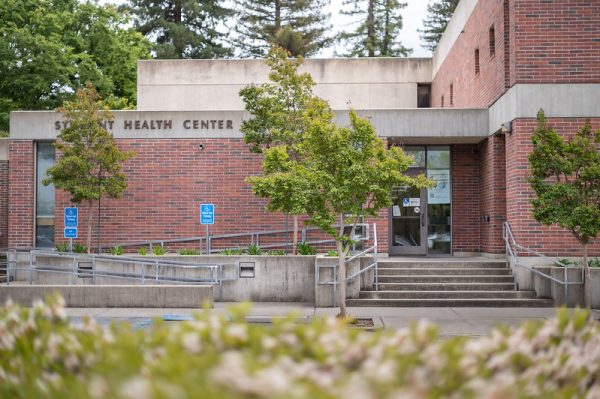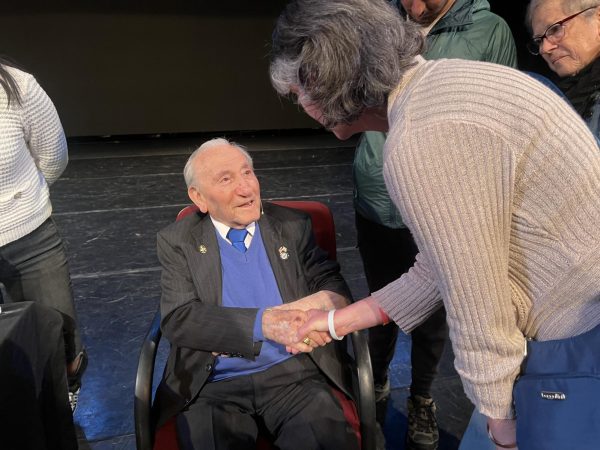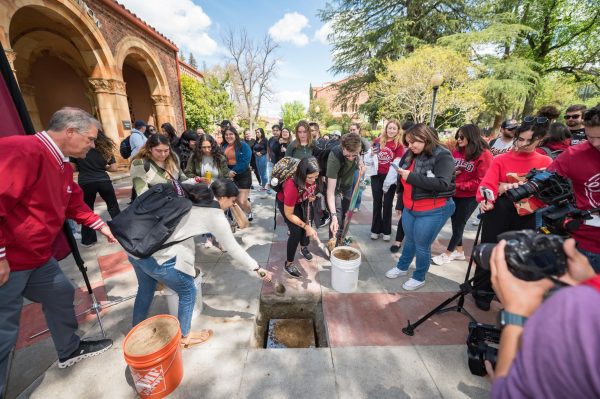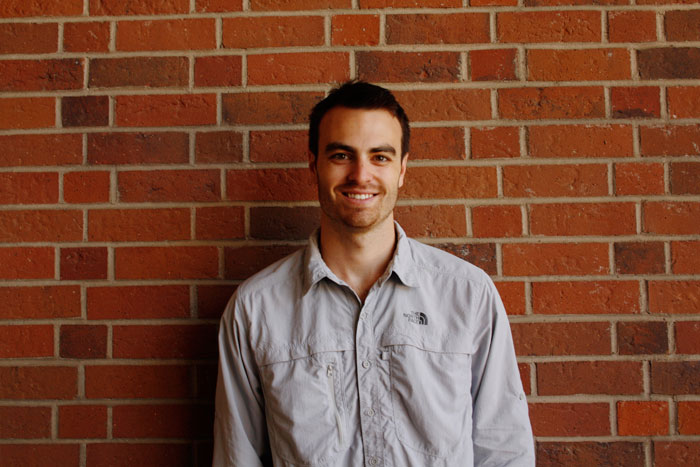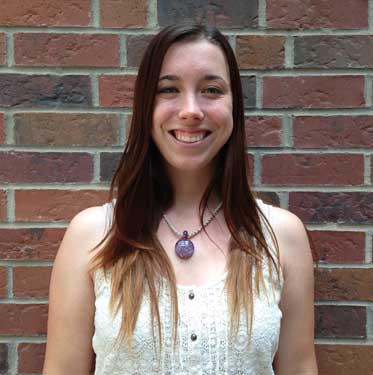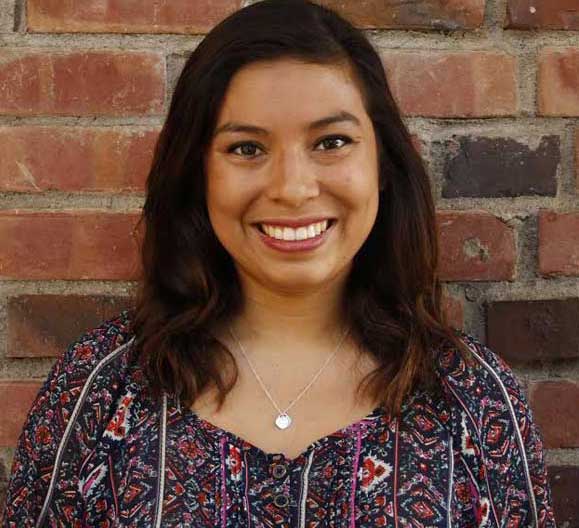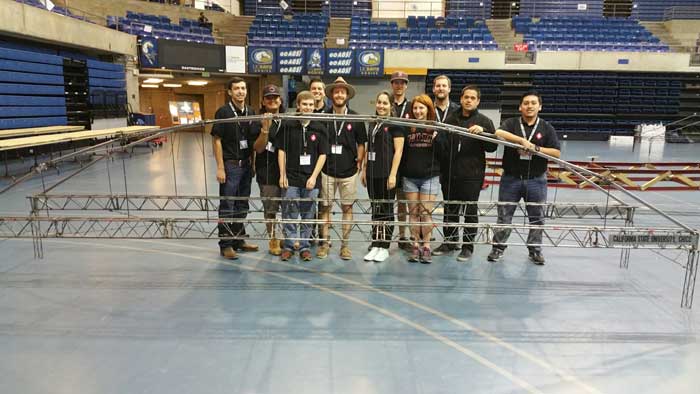Published 2006-01-30T00:00:00Z”/>
Tanya Roscorla
When Melinda Whitehead started college, she knew what she wanted to study.
Since she was 10, she ordered appetizers at restaurants instead of items from the main menu because the appetizers sounded so good. Her dad would tell her they did not make a full meal, but she did not care.
She dreamed of starting a restaurant that served only appetizers and desserts, and she decided in high school that she wanted to run a laid-back cafe with live bands. She would serve a little bit of everything, including nachos and french fries, with sushi and other international side dishes.
During her first year at Chico State, Whitehead pursued her dream by declaring a business major. But in her “Understanding Global Business” class, she lost her dream and her interest in school when she discovered restaurants are expensive to start and 90 percent of them fold.
Like many students, Whitehead had a choice: get motivated or let her grades slide. Each year, 450 to 600 students make the choice to keep sliding, according to academic advising statistics. These students’ GPAs slide so far that they get kicked out of the university after being on academic probation or earning a 1.0 in a semester.
With no dream left to pursue, Whitehead let her grades slide.
“I just wasn’t motivated,” Whitehead said. “I didn’t have anything to draw me in.”
By the end of her first year, her GPA had slid below a 2.0, and the advising office sent a letter informing her that she would be on academic probation in the fall.
<strong>Into the deep end</strong>
Whitehead kept sliding her sophomore year as she skipped classes almost every week. She went to her “California Cultural Landscapes” class about five times during the spring semester to take exams and attend one or two lectures. She did not read the book, did not like her teacher’s style and did not study for the exams because of personal issues that left her without motivation.
She earned A’s on the short writing assignments but failed the class because she did not study for the multiple-choice tests, which were worth more points. The B, C and D she earned in her other classes were not enough to keep her in school, so she was disqualified from the university for a year.
“I needed that to shake me,” Whitehead said. “As soon as I heard I got kicked out, I wanted to get back in.”
<strong>Strategies for success</strong>
Probation students can stop sinking into academic deep waters by seeing an adviser the first two weeks of the semester and taking 14 units or fewer as the Academic Senate recommends, said Spencer Bolich, director of academic advising.
When students like Whitehead come in for advising, Bolich says, “Gosh, you really have potential here. Why aren’t you doing a little bit better? You’ve got to learn how to study and do stuff right.”
As of this academic year, first-year through senior students on probation have to keep their cumulative and Chico State GPAs above 1.50, 1.70, 1.85 and 1.95 respectively to stay enrolled. Once students go below those numbers, they have to take classes at a community college or through Chico State’s Open University program, which does not require university admission, he said.
California State University students must maintain a 2.0 or higher GPA because they need at least that to graduate, Bolich said.
“Your goal is to graduate, not to stay here at a 1.95,” he said.
Some people fall below the GPA limit because they use drugs, abuse alcohol, have family problems or become ill, he said. But others have a more common problem.
“For most people, it’s the lack of maturity,” Bolich said. “Other things have priority; it’s easier to sleep in Wednesday morning or Thursday morning.”
<strong>Getting priorities straight</strong>
Earning a 3.5 semester GPA to get on the Dean’s List is senior Justin Kabalin’s top priority. He and his friends had low semester GPAs in the spring and decided it was time to stop slacking off.
They each bet $40 to see who has the highest and the most improved GPA by the end of the semester, Kabalin said. He can get excited about what he is studying since he changed majors from environmental science to psychology this summer.
“I thought I wanted to do the whole science thing, and I ended up wanting to do the complete opposite,” he said.
Psychology will help him understand how people think so he can maximize his sales in real estate after he graduates in fall 2006, Kabalin said. He currently has a real estate license and is studying for a broker’s license.
In the meantime, he said he is pretty confident about winning the bet. If he does earn a 3.5 GPA, it will be the highest semester GPA he has earned in college.
Sophomore Katie Reed’s goal is to keep her GPA up so she can study abroad in Australia, New Zealand or Costa Rica within the next few years.
“I can’t get bad grades if I want to go to Australia or grad school,” Reed said after talking to an adviser about her minor and class schedule options.
Working 20 to 25 hours a week at Applebee’s Neighborhood Grill & Bar and taking 15 units helps the psychology major keep her GPA up. Reed’s schedule is unlike her first year when she was not as busy and took tequila shots on Tuesday nights.
Going out and studying in her room in Lassen Hall are two priorities first-year student Emily Songey is trying to balance.
“There’s always people in the hallways yelling and screaming,” Songey said. “And I’m like, ‘God, I can’t do it,’ ’cause then I want to go and hang out with them.”
The business administration major said she felt accomplished by talking to an adviser about next semester’s class schedule and by studying more for midterms than she probably did in high school.
But Songey plans to study more before and after each class to help her remember what she learns.
<strong>Faculty, advisers support students’ goals</strong>
Business management Professor Marc Siegall tells students who are struggling to balance their priorities to review their notes one or two nights a week so their brains will build and maintain a knowledge database.
“The night before an exam should be like any other study night; it shouldn’t be a big deal,” Siegall said.
When students tell him they are on academic probation and need to get their grades up, he gives advice to help students achieve their goals.
“As early as possible, go to advising, go to faculty, go to study-skills workshops. Take action right away,” Siegall said.
First-year students and sophomores tend to have a hard time adjusting to their independence and end up on academic probation, said Dami Hammer, academic advising intern. If they do not talk to an adviser and figure out why they are going to school, they are headed for trouble.
“It’s a vicious circle where you feel like, ‘How can I get out of this?'” she said.
Looking at goals realistically and taking small steps toward improvement will help students get into better study habits, Hammer said. Students also need to major in something they find interesting so they will be motivated.
<strong>Back into the shallow end</strong>
Whitehead changed her major from business to psychology, then to multicultural and gender studies before she became interested in school again.
She talked with an adviser once she was kicked out and took classes at Chico State through Open University for a year to boost her GPA. She earned A’s and B’s, and replaced the failing grade in her geography class by repeating it with forgiveness.
Asking for help from advisers embarrassed Whitehead at first, but the advisers encouraged her throughout that time. From now on, she plans to seek advising regularly to make sure she is on the right track.
The Academic Status Committee accepted her petition to re-enter the university this year, so she signed up for a 12-unit load and is carrying a ring of flashcards around to study for exams.
“I rewrite my notes so I can just sit and flip,” Whitehead said.
The fear of drowning again helps Whitehead stay motivated to go to class and study, in addition to working 24 to 35 hours a week at Mervyn’s. But she needed to realize she could do well in school before she could get motivated.
“I had to go through a period where I realized I wasn’t stupid, I just wasn’t trying.”
Tanya Roscorla can be reached at
<a href= “mailto:[email protected]”>[email protected]</a>

